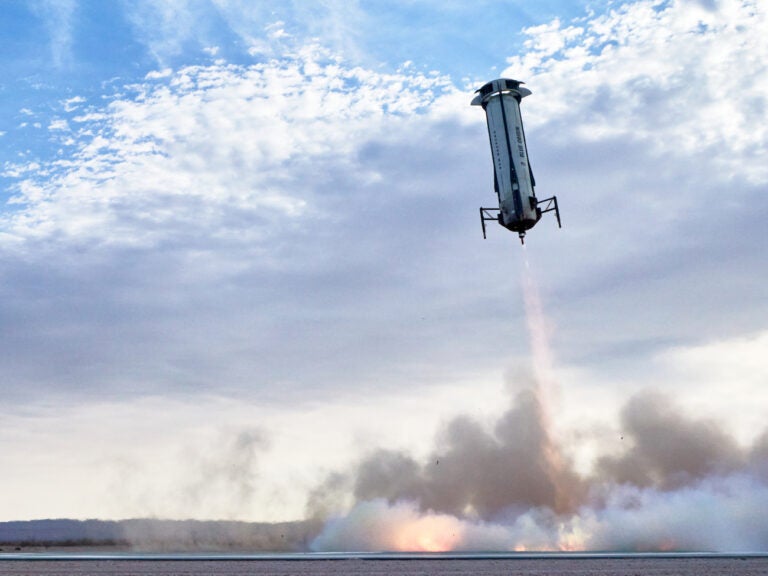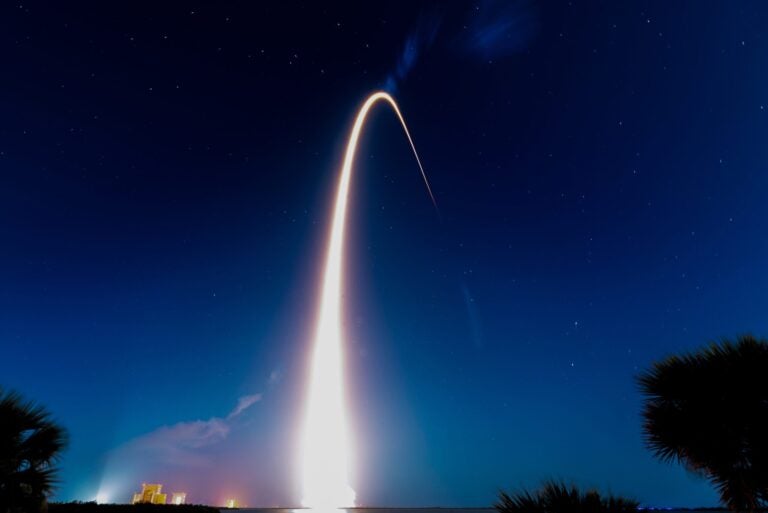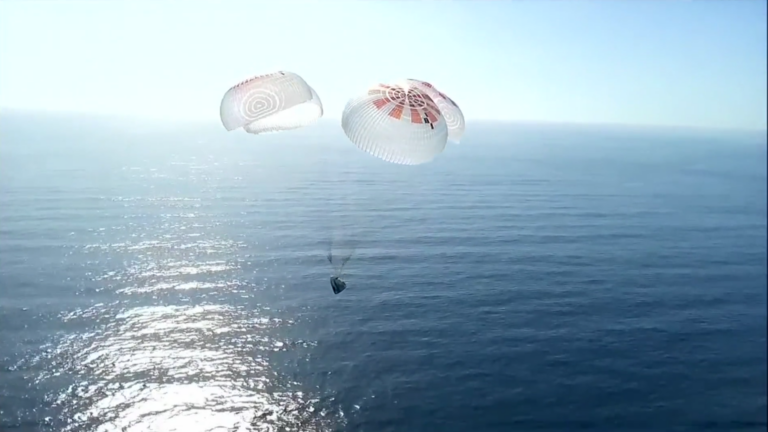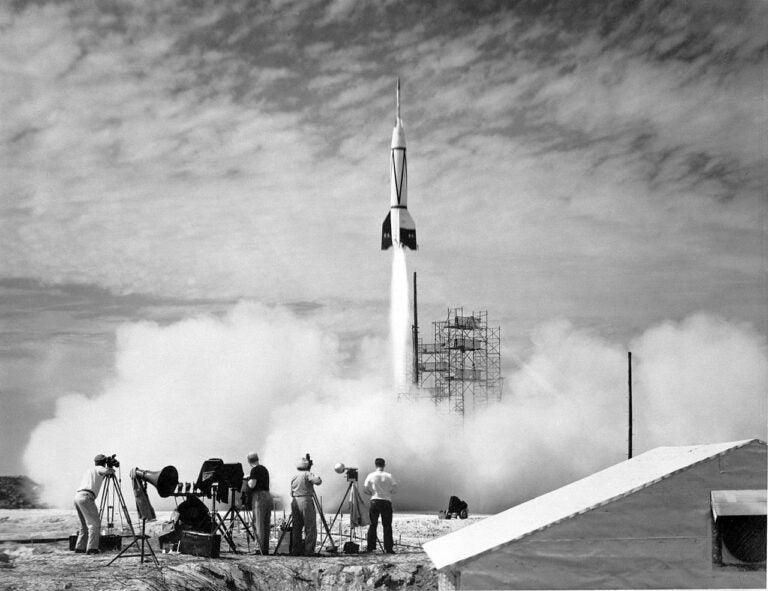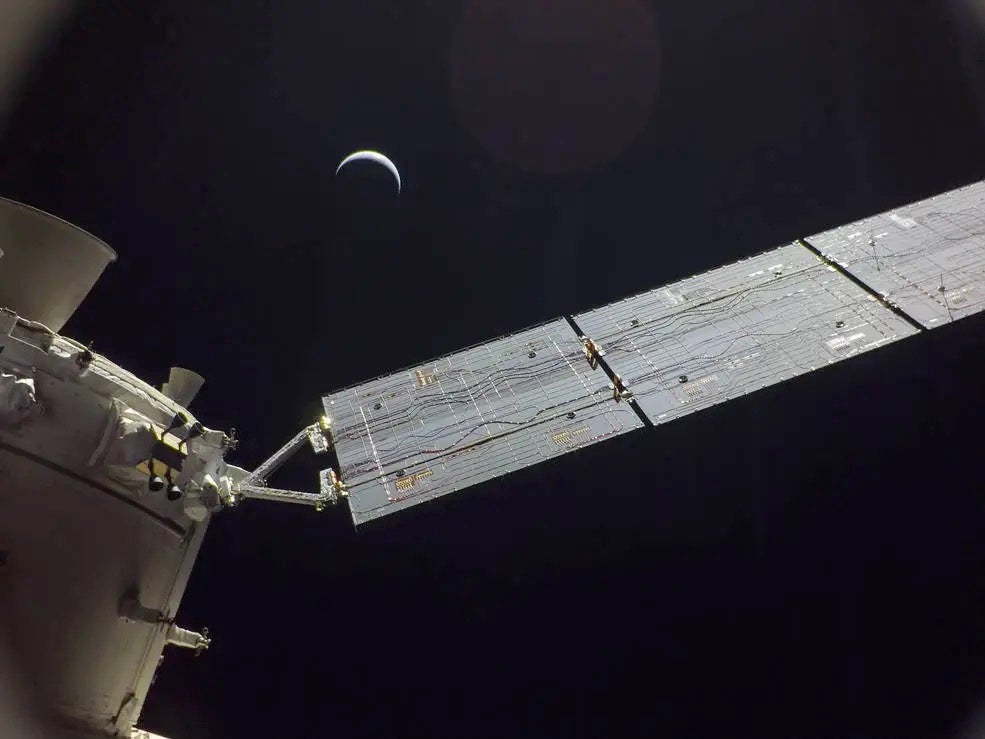
Here is a list to help you keep track of many current and scheduled space missions. We’ve gathered a selected group of high-profiles ones, listed them below, and linked to official sites where you can get the latest updates and launch dates.
We’ll update this article periodically when new missions are announced.
Here is the list of missions in alphabetical order:
2001 Mars Odyssey

Mission: This Mars orbiter was launched with the intention of detecting water and ice on the planet, as well as studying its composition.
Agency: NASA
Launch date: April 7, 2001
Aditya-L1
Mission: The mission, which name means “Sun” in Sanskrit, was launched to conduct a comprehensive study of the Sun, sitting at the Lagrange point L1 between the Sun and Earth.
Agency: Indian Space Research Organisation (ISRO)
Launch date: Sept. 2, 2023
Akatsuki
Mission: The orbiter mission was designed to study weather patterns and atmospheric conditions, as well as search for the possibility of lighting and active volcanoes.
Agency: JAXA
Launch date: May 21, 2010
Ariel
Mission: This mission will be placed at Lagrange point L2 to study thousands of exoplanets, ranging from rocky planets to gas giants in visible and infrared wavelengths.
Agency: ESA/Ariel Mission Consortium
Expected launch: 2029
Artemis II
Mission: The mission, featuring a crew of four astronauts, will perform a series of flights maneuvers as well as tests in space to ensure the systems are appropriate to take the Artemis III crew to the Moon.
Agency: NASA
Expected launch: September 2025
Artemis III

Mission: The mission is expected to take four astronauts to the lunar South Pole for the first time to explore, collect geologic samples, and take images of the region’s unique features.
Agency: NASA
Expected launch: September 2026
BepiColombo
Mission: BepiColombo, comprised of two orbiters, was designed to study composition, geophysics, atmosphere, magnetosphere and history of Mercury.
Agency: Japan Aerospace Exploration Agency (JAXA)/ESA
Launch date: Oct. 18, 2018
Chandrayaan-3
Mission: With its lander, Vikram, and rover, Pragyan, this mission landed safely on the Moon’s south pole.
Agency: ISRO
Launch date: July 14, 2023
Boeing Starliner
The Starliner launch is part of NASA’s Commercial Crew Program, which seeks to launch astronauts into space in a private/public partnership using American tech.
Comet Interceptor
Mission: Made up of three spacecrafts, the mission will wait at the Lagrange point L2 before separating to gather 3D images of Comet Interceptor as well as its nucleus and composition.
Agency: ESA
Expected launch: 2029
DAVINCI
Mission: Deep Atmosphere Venus Investigation of Noble Gases, Chemistry, And Imaging (DAVINCI) probe would explore the atmosphere of Venus.
Agency: NASA
Expected Launch: June 2029
Dragonfly
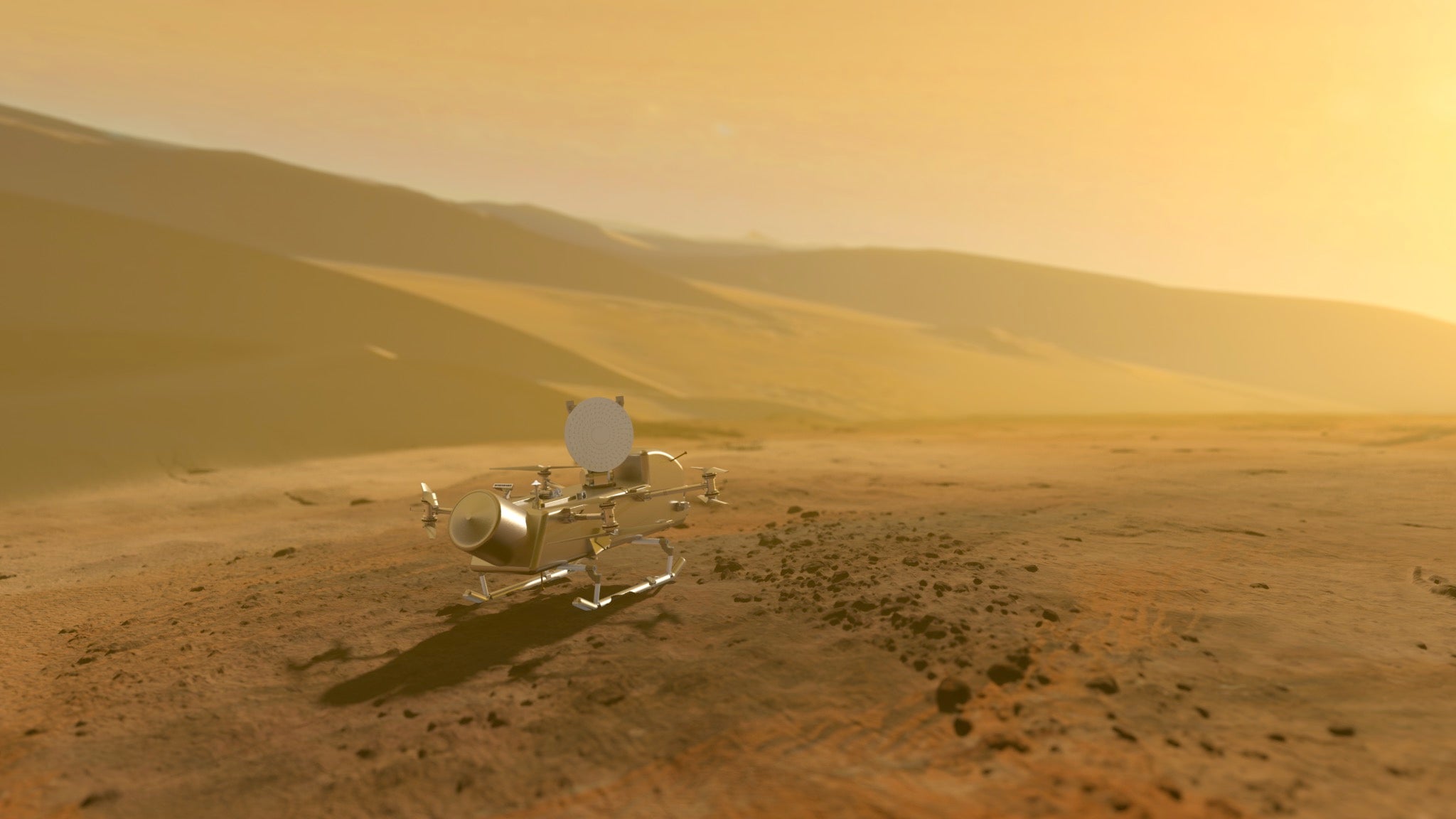
Image credit: NASA/Johns Hopkins APL/Steve Gribben
Mission: This dual-quadcopter would explore a variety of locations on Saturn’s moon, Titan, for possible habitability.
Agency: NASA
Expected launch: 2027
Emirates Mars Mission
Mission: The Emirates Mars Mission, named “Hope Probe” will gather a picture of the Martian atmosphere and its layers. It will also look at the planet’s loss of hydrogen and oxygen gases into space over the span of one Martian year.
Agency: UAE Space Agency
Launch Date: July 20, 2020
EnVision
Mission: The mission is to investigate Venus from its inner core to its upper atmosphere, characterizing the interaction between its atmosphere, surface, and interior.
Agency: ESA
Expected launch: early 2030s
EscaPADE
Mission: The Escape and Plasma Acceleration and Dynamics Explorers (EscaPADE) are a dual-spacecraft mission to study the transfer of solar wind energy and momentum.
Agency: NASA
Expected launch: 2024
Europa Clipper
Mission: Europa is expected to explore the moon of Jupiter with the same name during a series of flybys. Its objectives include studying the moon’s ice shell and ocean, as well as its composition and geology.
Agency: NASA
Expected Launch: Oct. 10, 2024
Hera
Mission: The spacecraft will perform a survey of the target asteroid, Dimorphos and the orbiting moonlet Didymos, after the NASA Dart Mission conducted its asteroid deflection on Sept. 26, 2022.
Agency: ESA
Expected launch: October 2024
IM-1
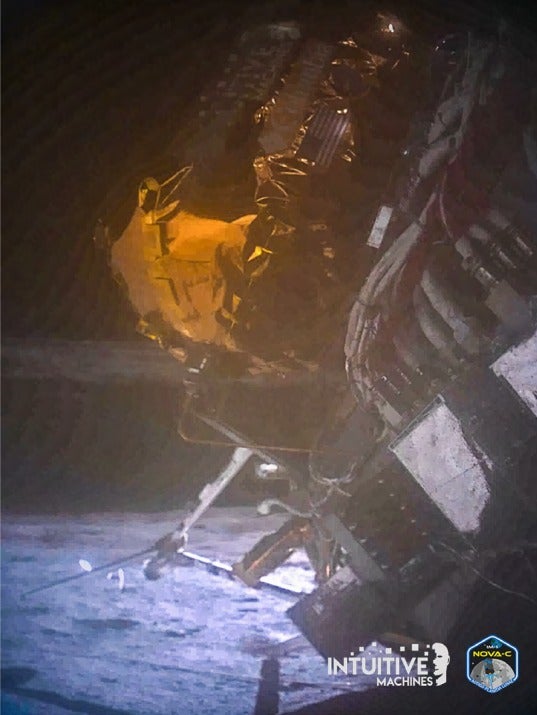
Mission: Intuitive Machines’ Odysseus’ landing on Feb. 22, 2024, made it the first American-made craft to land on the Moon since 1972 and the first non-governmental craft to ever do so. Odysseus carried six payloads under contract for NASA. Several were intended to collect data and test navigation and landing technology that will be used for the agency’s Artemis program, which will return astronauts to the Moon.
JUICE
Mission: Jupiter Icy Moons Explorer, or JUICE, was dispatched to study the composition of Jupiter along with its three large, water-logged moons – Ganymede, Callisto and Europa.
Agency: European Space Agency (ESA)
Launch date: April 14, 2023
Juno
Mission: Understand origin and evolution of Jupiter and its four largest moons, look for solid planetary core, map magnetic field, measure water and ammonia in deep atmosphere, observe auroras.
Agency: NASA
Launch date: Aug. 5, 2011
Korean Pathfinder Lunar Orbiter (KPLO)
Mission: Known as Danuri, this is a lunar probe expected to carry out the mission of lunar observation while flying at an altitude of 100km over the Moon.
Agency: Korea Aerospace Research Institute (KARI)
Launch date: Aug. 5, 2022
Lucy
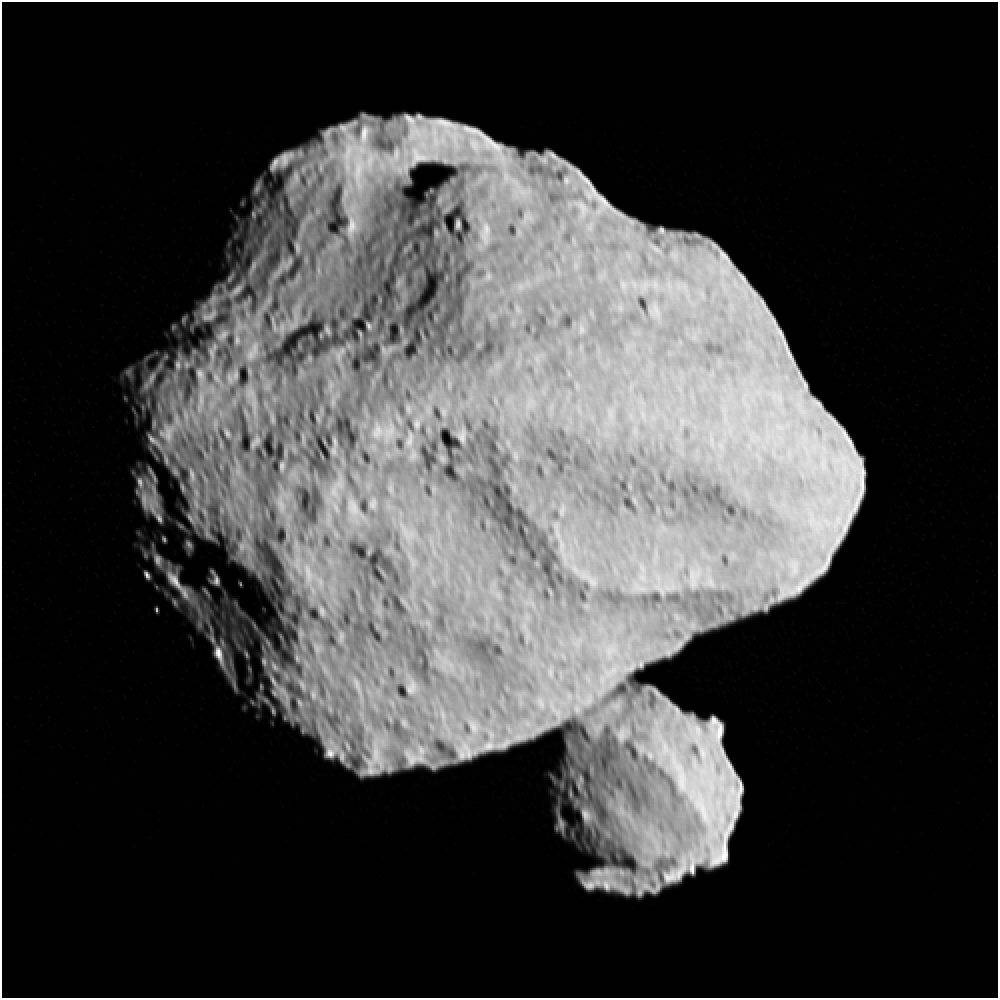
Mission: Lucy was launched to view trojan asteroids surrounding Jupiter.
Agency: NASA
Launch date: Oct. 16, 2021
Related: Surprise! NASA’s Lucy mission uncovered an asteroid moon that is actually two in one
Lunar Reconnaissance Orbiter
Mission: The mission began as a way to target areas for future robotic and human exploration on the Moon. After two years, it focused more on studying temperature maps and other scientific data on Earth’s satellite.
Agency: NASA
Launch date: June 18, 2009
Mars Express
Mission: The orbiter’s goal was to complete a map of the Mars’ atmospheric composition and water on its surface, as well as learning more about one of its moons, Phobos.
Agency: ESA
Launch date: June 2, 2003
Mars Sample Return
Mission: The mission involves Mars Perseverance Rover working with a lander and orbiter to retrieve samples from Mars and deliver them to Earth.
Agency: NASA/ESA
Expected launch: TBD. NASA announced a call for or agencies to take over the mission to Mars on April 14.
MAVEN
Mission: Mars Atmosphere and Volatile Evolution or MAVEN, studies the upper atmosphere of Mars as well as its interaction with the Sun and solar winds.
Agency: NASA
Launch date: Nov. 18, 2013
MMX
Mission: Martian Moons eXploration (MMX) will explore the two moons of Mars, Deimos and Phobos, to collect data on the satellites as well as samples of Phobos’ surface before returning to Earth.
Agency: JAXA
Expected Launch: September 2024
Parker Solar Probe
Mission: The probe’s main objective was to be the first spacecraft to fly through the Sun’s upper atmosphere to study the evolution and origins of solar wind, to determine if we can forecast the space weather in the future.
Agency: NASA
Launch date: Aug. 12, 2018
Proba-3
Mission: Two satellites –the Coronagraph spacecraft and the Occulter spacecraft – will fly in tandem to learn about autonomous formation flying. They will also study the Sun’s corona and surrounding atmosphere.
Agency: ESA
Expected launch: 2024
Psyche
Mission: The mission is expected to land on the asteroid with the same name between Mars and Jupiter. It will study the asteroid’s metal core and determine its age.
Agency: NASA
Launch: Oct. 13, 2023
SOHO
Mission: The Solar & Heliospheric Observatory (SOHO) mission was designed to study the Sun inside and out as well as observe space weather.
Agency: ESA/NASA
Launch date: Dec. 2, 1995
SPHEREx
Mission: The Spectro-Photometer for the History of the Universe, Epoch of Reionization and Ices Explorer (SPHEREx)
Agency: NASA
Expected launch: No earlier than June 2024
STEREO
Mission: The twin Solar TErrestrial RElations Observatory, or STEREO spacecrafts (STEREO-A and -B) launched as the first stereoscopic, or multiple-perspective, view of the Sun.
Agency: NASA
Launch date: Oct. 25, 2006
VERITAS
Mission: Venus Emissivity, Radio Science, InSAR, Topography, and Spectroscopy or VERITAS (also Latin for “truth”) is expected to study the interior evolution and surface of Venus.
Agency: NASA/German Aerospace Center (DLR)/Italian Space Agency (ASI)/France’s Centre National
Expected Launch: No earlier than 2031
VIPER
Mission: Volatiles Investigating Polar Exploration Rover (VIPER) will explore Earth’s Moon, characterizing its distribution and composition
Agency: NASA
Expected launch: Late 2024
Voyager 1
Mission: A probe launched 46 years ago with the intention of studying the outer Solar System and interstellar space.
Agency: NASA
Launch date: Sept. 5, 1977
Voyager 2
Mission: Although named Voyager 2, the probe was launched before Voyager 1, with a longer expected trip to Saturn and Jupiter, but it ultimately had a better vantage point of Uranus and Neptune.
Agency: NASA
Launch date: Aug. 20, 1977
Both Voyager 1 and Voyager 2 carry The Golden Record of images and sounds.

